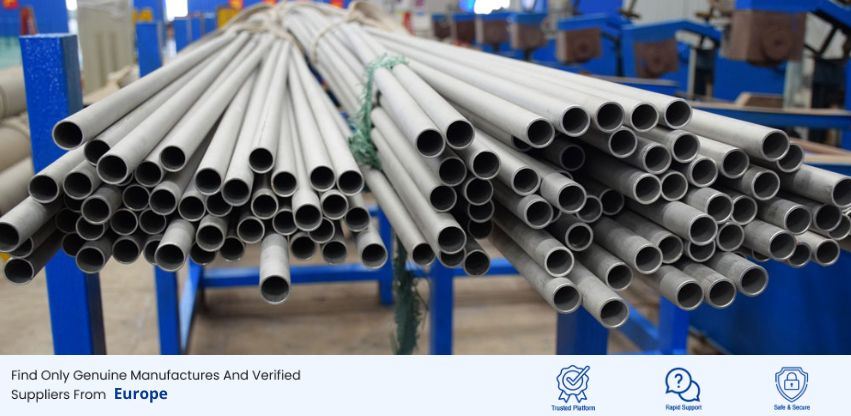
PipingProjects.eu is one of the leading Steel Tube Manufacturer in Europe. A steel tube is a cylindrical hollow construction constructed mostly of steel, which is well-known for its adaptability and broad application in a variety of sectors. These Steel Tubes are created using procedures such as seamless extrusion or welding, and come in a variety of forms and diameters to suit specific needs. Steel tubes are used for a variety of reasons, including structural support in building and infrastructure projects and the conveyance of fluids, gases, or materials in industrial, mechanical, and plumbing systems. We are also a major Steel Tube Supplier in Europe.
Our Steel Tubes adaptability extends beyond their structural strength; they are engineered for easy installation, maintenance, and integration into complicated systems. With an emphasis on sustainability, our tubes are produced using environmentally aware procedures, guaranteeing that they not only satisfy regulatory criteria but also contribute to eco-friendly practices in the sectors they service.
Steel's inherent strength and endurance make these tubes resistant to external forces, corrosion, and high pressure situations, making them vital in industries such as manufacturing, transportation, and energy. Steel Tubes are available in a variety of kinds, including seamless, welded, and galvanized varieties, and they have excellent properties that lead to their widespread use and relevance in the current industrial environment.

Does this product seem useful to you?
Reach out to us now for quick support.
Trusted
Supplier
Genuine
Product
Easy
purchase
Steel Tube Specification Chart
| Particulars | Specification | |
|---|---|---|
| Tube | 1/2" NB - 24" NB | |
| ERW Tubes | 1/2" NB - 24" NB | |
| EFW Tubes | 6" NB - 100" NB | |
| Tubing Size | 1/8″NB TO 30″NB IN | |
| Specialized in | Large Diameter Size | |
| Schedule | SCH5, SCH10, SCH20, SCH30, SCH40, Std, SCH80, XS, SCH60, SCH80, SCH120, SCH140, SCH160, XXS | |
| Type | Seamless / ERW / Welded / Fabricated / LSAW Tubes | |
| Form | Round, Square, Rectangular, Hydraulic Etc | |
| Length | Single Random, Double Random & Cut Length | |
| End | Plain End, Beveled End, Treaded | |
| Grade | ||
| Stainless Steel | 200 Series - 201, 202, 205.
300 Series 301, 302, 303, 304, 304L, 308, 309, 309S, 310, 310S, 314, 316, 316L, 316TI, 317, 317L, 321, 347. 400 Series 405, 409, 429, 430, 430F, 430FSe, 434, 436, 442, 446, 403, 410, 414,416, 416Se, 420,420F, 422, 431, 440A, 440B, 440C. 500 Series - 501, 502. 600 Series - 630 (17-4 PH). |
|
| Carbon Steel | ASTM A106 Gr. A , B & C API 5L Gr. A / B, X42 ,X52 ,X60 ASTM A 53 Gr. A/B | |
| Titanium | Titanium 6-4, Gr 1, Gr 2, Gr 3, Gr 4, Gr 5, Gr 7, Gr 9, 5-2.5, 6-2-4-2, 6-4 ELI, 6-6-2. | |
| Hastelloy | C22, C276, X, B-2. | |
| Monel | 400, K500. | |
| Nickel Alloy | Nickel 200 Nickel 201, Alloy 20, Alloy 286, Alloy 218 (Nitronic 60), Nitronic 50 (XM-19). | |
| Cupro Nickel | Cu 90-10 (C70600,CW352H), Cu 70-30 (C71500, CW354H). | |
| Inconel | 601, 625, 660A, 718, X-750, 825, 925, 608. | |
| Duplex / Super Duplex | D S31803, D S32205, SD S32750, SD S32760, SD S32950. | |
| Chromium Molybdenum Steel | A387 Gr 2, A387 Gr 12, A387 Gr 11, A387 Gr 22, A387 Gr 22L, A387 Gr 7, A387 Gr 21, A387 Gr 21L, A387 Gr 9, A387 Gr 91. | |
| Nichrome Alloy | CrNi 20/80. | |
| Copper | ASTM B1, ASTM B2, ASTM B3, ASTM B152, ASTM B124, ASTM B133. | |
| Brass | Alloy 260, Alloy 272, Alloy 330, Alloy 353, Alloy 360, Alloy C48200 - C48500, Alloy 464. | |
| Bronze | Alloy 954, Alloy 933. | |
| Case Hardening Steels | 10C4, 15C8, 15Cr3, 16Mn5Cr4, 20MnCr5, 15Ni5Cr4Mo1, 15Ni5Cr4Mo2, 20Ni7Mo2, 20NiCrMo2, 14CrNi6. | |
| En Series | En8, En9, En19, En24, En30B, En31, En36, En45, En47, En48. | |
| Mild Steel | Sae 4118, Sae 4120, Sae 4120, Sae 4130, Sae 4135, Sae 4137, Sae 4140, Sae 4142, Sae 4145, Sae 4147, Sae 4150, Sae 4161, Sae 8620. | |
What Materials Is Used To Make Steel Tubes?
As a leading Steel Tube Manufacturer in Europe, Steel tubes are fabricated for a variety of industrial applications and from a variety of materials. Carbon steel is preferred because of its durability and affordability, allowing it to withstand mild temperatures and pressures. Nonetheless, it may require protective coatings to prevent corrosion.
PipingProjects.eu is a top Steel Tube Supplier in Europe. Alloy steel is the ideal choice for power generation due to its mix of alloys such as chromium, molybdenum, and nickel. This allows it to tolerate severe temperatures and pressures. Stainless steel, on the other hand, is often utilized in corrosive or high-temperature settings, such as the petrochemical and chemical processing industries. It is very corrosion resistant and operates well at high temperatures.
How To Maintain And Inspect Steel Tubes ?
Steel Tube Outer Diameter
| Outer Diameter In mm | Permissible Variations In mm | |
|---|---|---|
| Over (+) | Under (-) | |
| 1 to 1 ½ (25.4 to 38.1), Incl | 0.006 (0.15) | 0.006 (0.15) |
| Under 1 (25.4) | 0.004 (0.10) | 0.004 (0.10) |
| Over 11⁄2 to 2 (38.1 to 50.8), Excl | 0.008 (0.20) | 0.008 (0.20) |
| 21⁄2 to 3 (63.5 to 76.2), Excl | 0.012 (0.30) | 0.012 (0.30) |
| 2 to 21⁄2 (50.8 to 63.5), Excl | 0.010 (0.25) | 0.010 (0.25) |
What Are The Different Types Of Steel Tubes?
PipingProjects.eu is a leading Steel Tube Manufacturer in Europe. These are a few examples of steel tubes used in piping projects around Europe.
Advantages Of Using Steel Tube
Steel tubes are an excellent choice for applications requiring great temperature resistance. Their extraordinary resilience to intense heat and pressure makes them a trusted choice for a wide range of industrial operations, power generating, and heating applications. These tubes efficiently transmit heat from combustion to water, generating steam or hot water for a variety of applications. Furthermore, their ability to withstand high temperatures without distortion or degeneration ensures constant and dependable performance even in harsh situations.
Steel Tube Size Chart
Discover our precisely manufactured steel tube size chart, which reflects our dedication to excellence as a top Steel Tube Manufacturer in Europe.
| Nominal Tube Size | ID | OD | Wall Thickness | Weight (LB/FT) |
|---|---|---|---|---|
| 1/2 | 0.622" | 0.840" | 0.109" | 0.85 lb/ft |
| 1/4 | 0.364 | 0.540' | 0.088" | 0.42 lb/ft |
| 1/8 | 0.269" | 0.405" | 0.068" | 0.24 lb/ft |
| 3/4 | 0.824" | 1.050" | 0.113" | 1.13 lb/ft |
| 3/8 | 0.493" | 0.675" | 0.091" | 0.57 lb/ft |
| 1 | 1.049" | 1.315" | 0.133" | 1.68 lb/ft |
| 1-1/2 | 1.610" | 1.900" | 0.145" | 2.72 lb/ft |
| 1-1/4 | 1.380" | 1.660" | 0.140" | 2.27 lb/ft |
| 2 | 2.067" | 2.375" | 0.154" | 3.65 lb/ft |
| 2-1/2 | 2.469" | 2.875" | 0.203 | 5.79 lb/ft |
| 3 | 3.068" | 3.500" | 0.216" | 7.58 lb/ft |
| 3-1/2 | 3.548" | 4.000" | 0.226" | 9.11 lb/ft |
| 4 | 4.026" | 4.500" | 0.237 | 10.79 lb/ft |
| 6 | 6.065" | 6.625" | 0.280" | 18.97 lb/ft |
| 5 | 5.047 | 5.563" | 0.258 | 14.62 lb/ft |
| 8 | 7.981" | 8.625" | 0.322" | 28.55 lb/ft |
| 12 | 11.938" | 12.75" | 0.406" | 53.52 lb/ft |
| 10 | 10.020" | 10.750 | 0.365 | 40.48 lb/ft |
| 14 | 13.124" | 14.000" | 0.438" | 63.50 lb/ft |
| 18 | 16.876" | 18,000" | 0.562" | 104.70 lb/ft |
| 16 | 15.000" | 16.000" | 0.500" | 82.77 lb/ft |
| 20 | 18.812" | 20,000" | 0.594" | 123.10 lb/ft |
| 24 | 22.624" | 24.000" | 0.688" | 171.30 lb/ft |
How To Prevent Steel Tubes From Rusting?
Steel Tube Dimension Chart
| NPS | Outside Diameter | Nominal Wall Thickness | ||||||||
|---|---|---|---|---|---|---|---|---|---|---|
| Designator | in. | mm | Schedule 5S | Schedule 10S | Schedule 40S | Schedule 80S | ||||
| in. | mm | in. | mm | in. | mm | in. | mm | |||
| 1/8 | 0.41 | 10.29 | … | … | 0.049 | 1.24 | 0.068 | 1.73 | 0.095 | 2.41 |
| 1/4 | 0.54 | 13.72 | … | … | 0.065 | 1.65 | 0.088 | 2.24 | 0.119 | 3.02 |
| 3/8 | 0.68 | 17.15 | … | … | 0.065 | 1.65 | 0.091 | 2.31 | 0.126 | 3.2 |
| 1/2 | 0.84 | 21.34 | 0.065 | 1.65 | 0.083 | 2.11 | 0.109 | 2.77 | 0.147 | 3.73 |
| 3/4 | 4.05 | 26.67 | 0.065 | 1.65 | 0.083 | 2.11 | 0.113 | 2.87 | 0.154 | 3.91 |
| 1 | 1.32 | 33.4 | 0.065 | 1.65 | 0.109 | 2.77 | 0.133 | 3.38 | 0.179 | 4.55 |
| 1 1/4 | 1.66 | 42.16 | 0.065 | 1.65 | 0.109 | 2.77 | 0.14 | 3.56 | 0.191 | 4.85 |
| 1 1/2 | 1.90 | 48.26 | 0.065 | 1.65 | 0.109 | 2.77 | 0.145 | 3.68 | 0.2 | 5.08 |
| 2 | 2.38 | 60.33 | 0.065 | 1.65 | 0.109 | 2.77 | 0.154 | 3.91 | 0.218 | 5.54 |
| 2 1/2 | 2.88 | 73.03 | 0.083 | 2.11 | 0.12 | 3.05 | 0.203 | 5.16 | 0.276 | 7.01 |
| 3 | 3.50 | 88.9 | 0.083 | 2.11 | 0.12 | 3.05 | 0.1216 | 5.49 | 0.3 | 7.62 |
| 3 1/2 | 4.00 | 101.6 | 0.083 | 2.11 | 0.12 | 3.05 | 0.226 | 5.74 | 0.318 | 8.08 |
| 4 | 4.50 | 114.3 | 0.083 | 2.11 | 0.12 | 3.05 | 0.237 | 6.02 | 0.337 | 8.56 |
| 5 | 5.56 | 141.3 | 0.10*9 | 2.77 | 0.134 | 3.4 | 0.258 | 6.55 | 0.375 | 9.52 |
| 6 | 6.63 | 168.28 | 0.10*9 | 2.77 | 0.134 | 3.4 | 0.28 | 7.11 | 0.432 | 10.97 |
| 8 | 8.63 | 219.08 | 0.109 | 2.77 | 0.148 | 3.76 | 0.322 | 8.18 | 0.5 | 12.7 |
| 10 | 10.75 | 273.05 | 0.134 | 3.4 | 0.165 | 4.19 | 0.365 | 9.27 | 0.5 | 12.7 |
| 12 | 12.75 | 323.85 | 0.156 | 3.96 | 0.18 | 4.57 | 0.375 | 9.52 | 0.5 | 12.7 |
| 14 | 14.00 | 355.6 | 0.156 | 3.96 | 0.188 | 4.78 | … | … | … | … |
| 16 | 16.00 | 406.4 | 0.165 | 4.19 | 0.188 | 4.78 | … | … | … | … |
| 18 | 18.00 | 457.2 | 0.165 | 4.19 | 0.188 | 4.78 | … | … | … | … |
| 20 | 20.00 | 508 | 0.188 | 4.78 | 0.188 | 4.78 | … | … | … | … |
| 22 | 22.00 | 558.8 | 0.188 | 4.78 | 0.218 | 5.54 | … | … | … | … |
| 24 | 24.00 | 609.6 | 0.218 | 5.54 | 0.25 | 6.35 | … | … | … | … |
| 30 | 30.00 | 762 | 0.25 | 6.35 | 0.312 | 7.92 | … | … | … | … |
What Is The Difference Between Seamless And Welded Steel Tubes?
Steel Tube Used in Industries

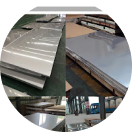
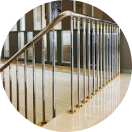
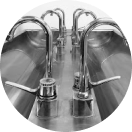
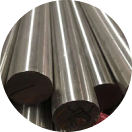
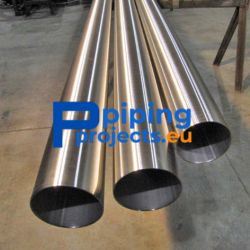
Steel Tube Manufacturer in Europe
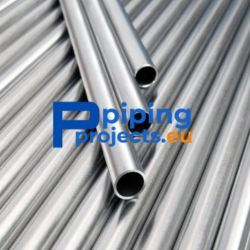
Steel Tube Supplier in Europe
